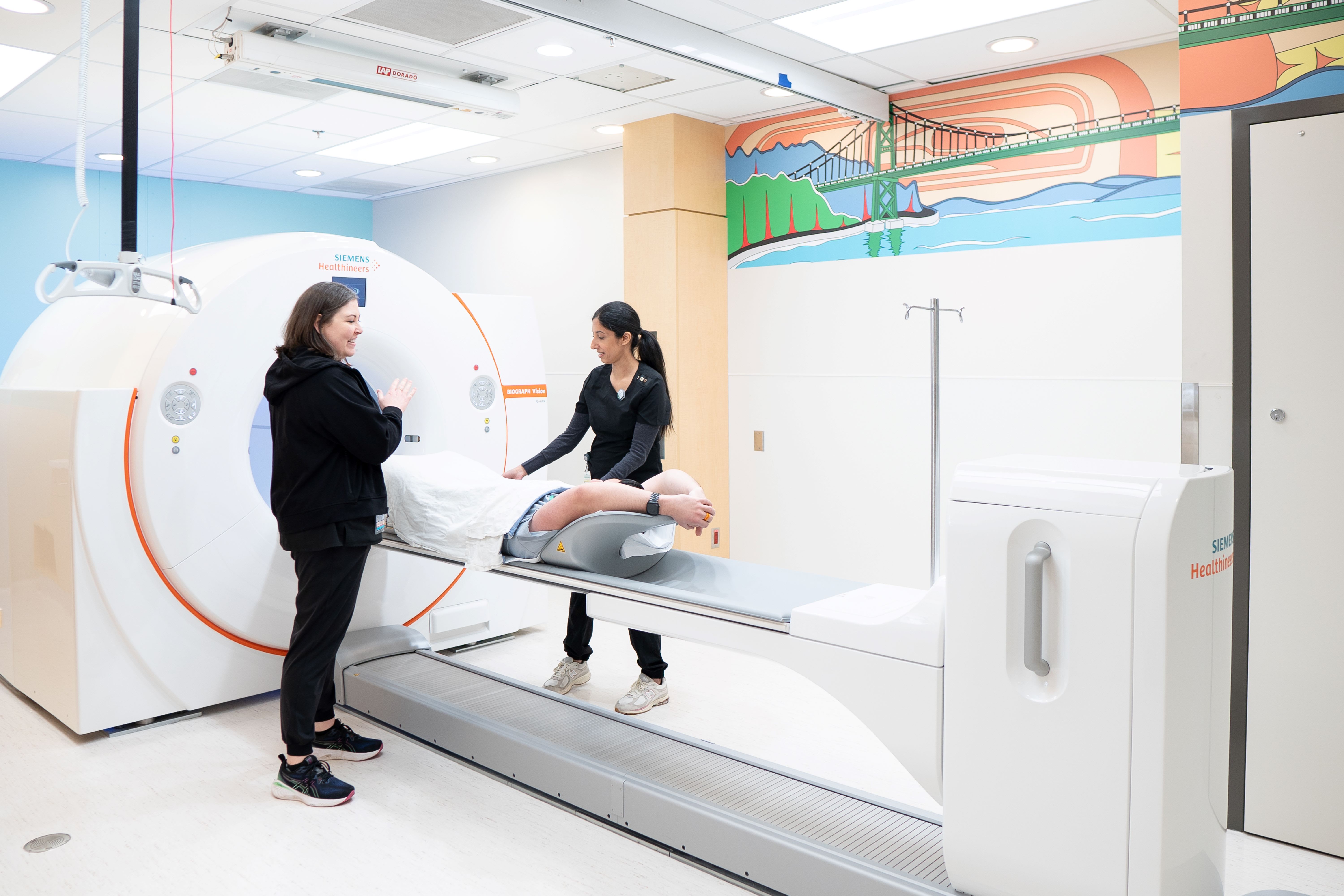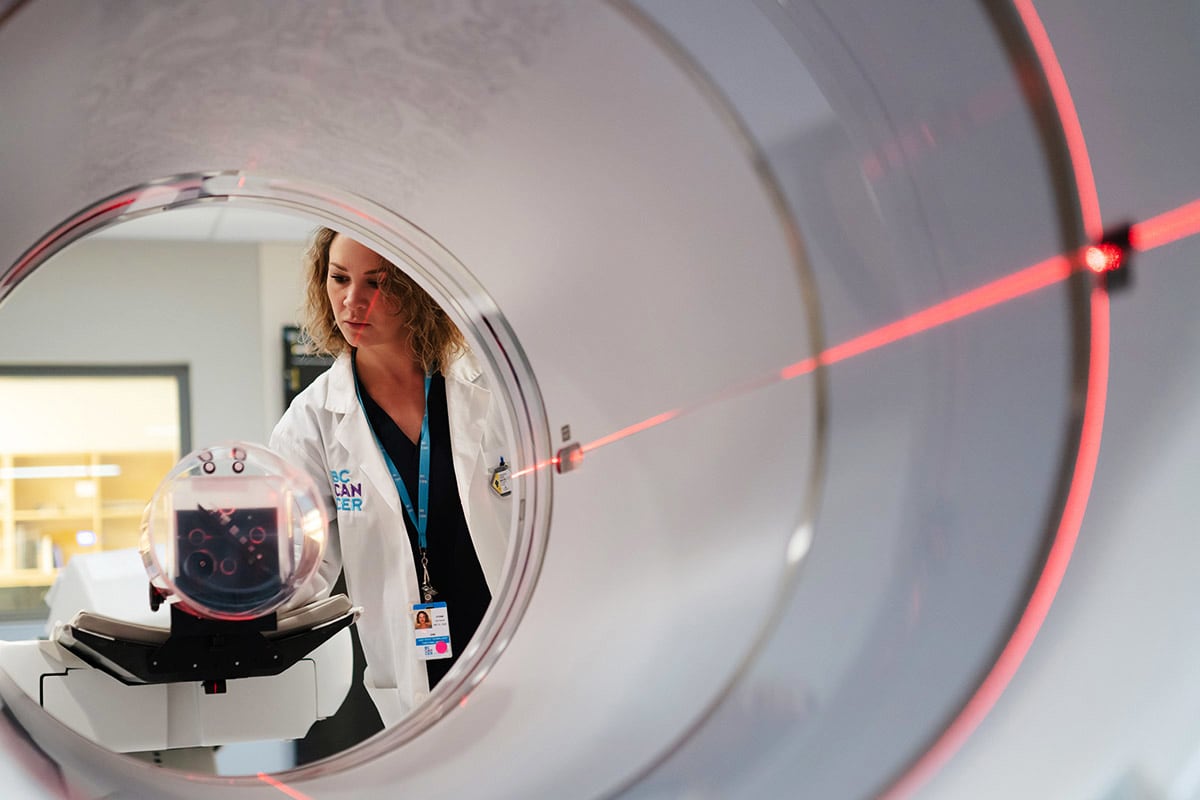Changing the Conversation on Lung Cancer
February 13, 2024
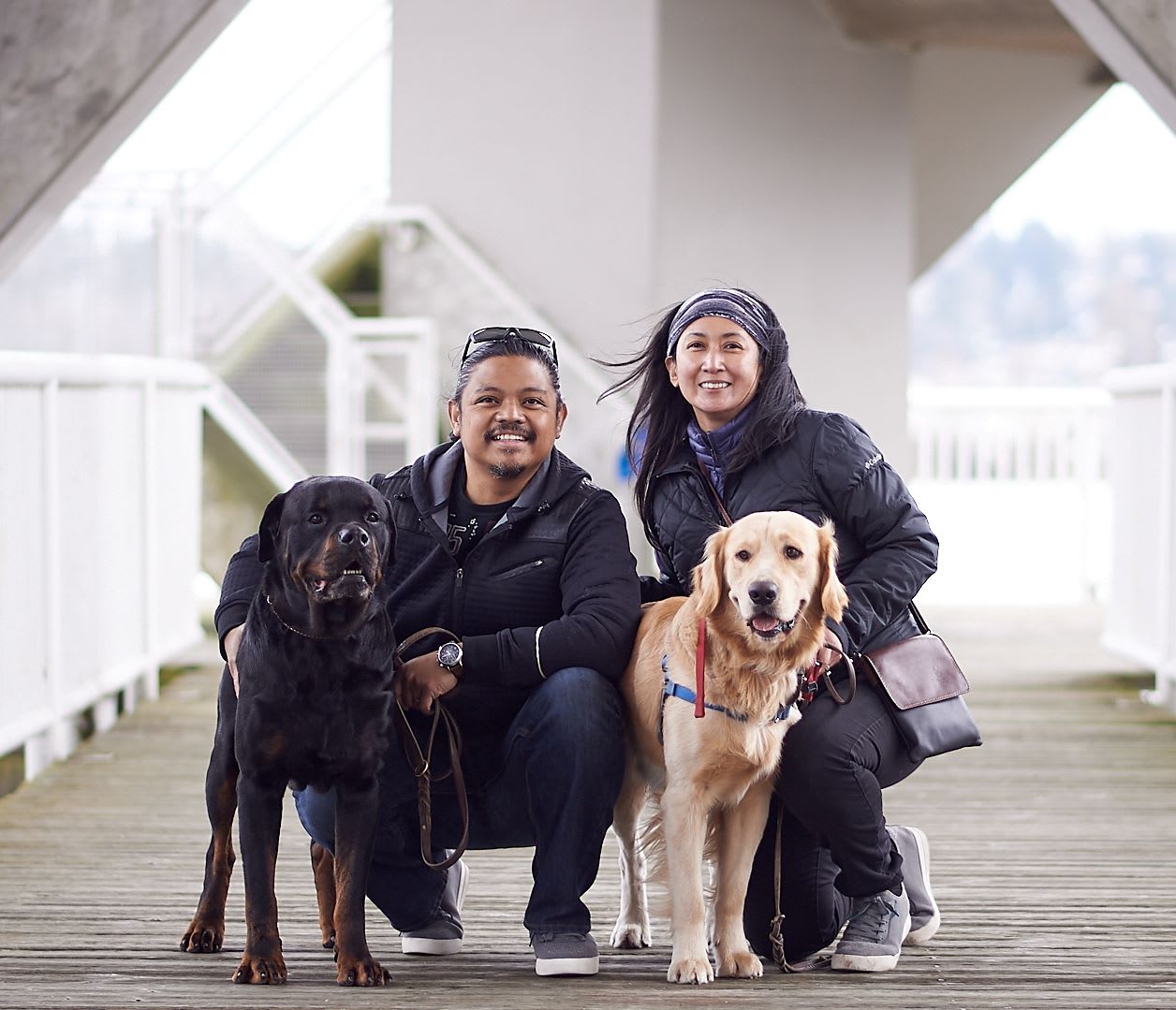
“I’m one of the people who stigmatized lung cancer because I even questioned myself, ‘Why would someone with a healthy lifestyle like me have this disease?’” says Adrienne Peralta of her initial reaction to the diagnosis she received five years ago.
At just 39, a flu turned into a bad cough and a week before her 40th birthday it was confirmed: Stage 4 lung cancer. “I asked the doctor what caused it,” says Adrienne. “And she said, ‘bad luck.’ Because I think she saw that I was blaming myself.”
While Adrienne has spent the years since participating in fundraisers such as Workout to Conquer Cancer and other lung cancer awareness initiatives, she only opened up about her own cancer last year.
It still comes with a lot of shame and stigma, she says. “Every time I tell people that I have lung cancer, they immediately ask, ‘Have you ever smoked?’”
Unfortunately, lung cancer is one of the most commonly diagnosed cancers and the leading cause of cancer death. Each year, it takes more lives than breast, colon and prostate cancer combined — largely due to a lack of early symptoms, which means the majority of lung cancer cases are diagnosed in late stage when it’s much less treatable — and yet it’s one of the most underfunded cancers in Canada.
Adrienne is sharing her story to help create awareness that lung cancer can affect anyone — it’s not just a smoker’s disease. And to advocate for more support of research to fuel advancements in early detection.
In 2022, with $1.75 million in BC Cancer Foundation support, BC Cancer launched the first provincewide lung cancer screening program in Canada. To be eligible, current requirements include being between 55 and 74 years of age, a current smoker or a history of smoking for 20 years or more.
However, lung cancer cases are on the rise in people who have never used tobacco. About 33% of lung cancer cases in B.C. occur in people who have never smoked. And secondhand smoke is looking a lot less likely a culprit as research shows it accounts for less than 15% of lung cancers in never smokers.
Adrienne initially wondered if her own cancer was a result of a relative who smoked. But after learning of BC Cancer research that women of Asian ethnicity are more susceptible to lung cancer brought on by air pollution, she turned to her childhood growing up in Southeast Asia.
“That makes more sense, I’m Asian and I’m not from here. I came here when I was 19. So half of my life I was in the Philippines, where air quality is a concern, and we commuted a lot,” she says.
She hopes BC Cancer’s work to develop a novel breath test that is harnessing artificial intelligence (AI) to help detect early cancer in non-smokers and other studies that look at genetics or environmental factors such as radon, asbestos and PM2.5 particle exposure in lung cancer in non-smokers will help fuel advances in early testing for a more diverse population.
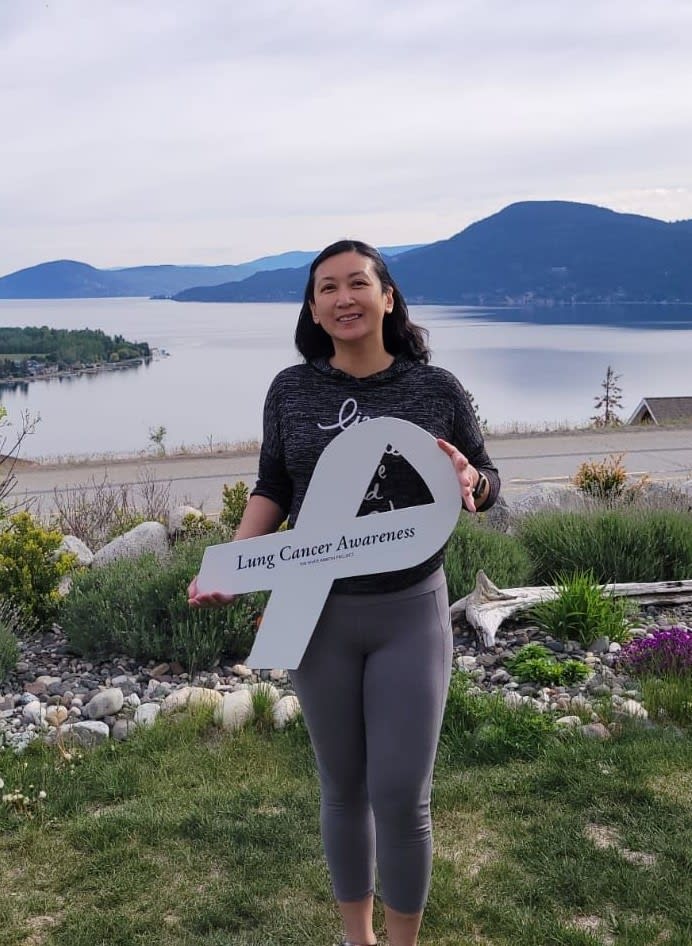
Having recently switched to a drug that was still in clinical trial when she was diagnosed, Adrienne is doing well. But her next CT scan, which she has every three months at BC Cancer – Vancouver, is never far from her mind. She and her husband Benjo are looking forward to an upcoming trip to the Philippines to help distract her.
“It’s still home,” she says. “All the troubles, the tests and the scanxiety just vanishes when I go back to the Philippines. It’s more relaxing. Everybody there is just happy.”
Adrienne also takes strength in even the small increases in survival rates since her diagnosis —all thanks to the power of research to advance treatment. “I really want to be a part of that change. I’m starting by sharing my story, because that’s what I can do. I also have my white ribbon displayed. And I fundraise.”
“But I know, honestly, it’s not for me. Stage 4 lung cancer is not curable. I’m doing it to make sure others aren’t diagnosed at late stage. To increase funding for research to help create tools to identify people who don’t use tobacco yet are at an increased risk of lung cancer. To catch the disease before it’s too late. Because in the end we do not choose cancer. And cancer does not wait.”
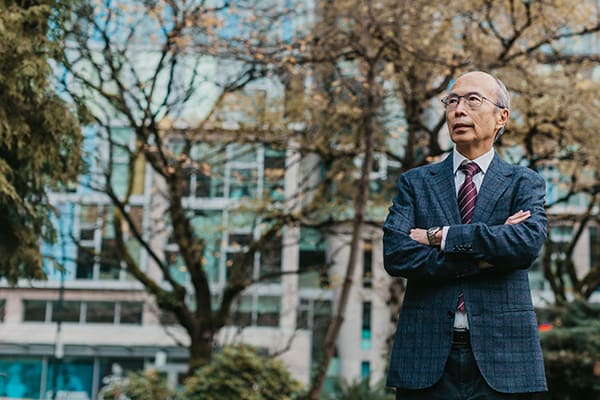
Life Beyond Cancer is Within Reach
Help Adrienne support BC Cancer’s world-leading lung cancer research and fuel advances in early lung cancer detection tools and screening.
Donate Now
